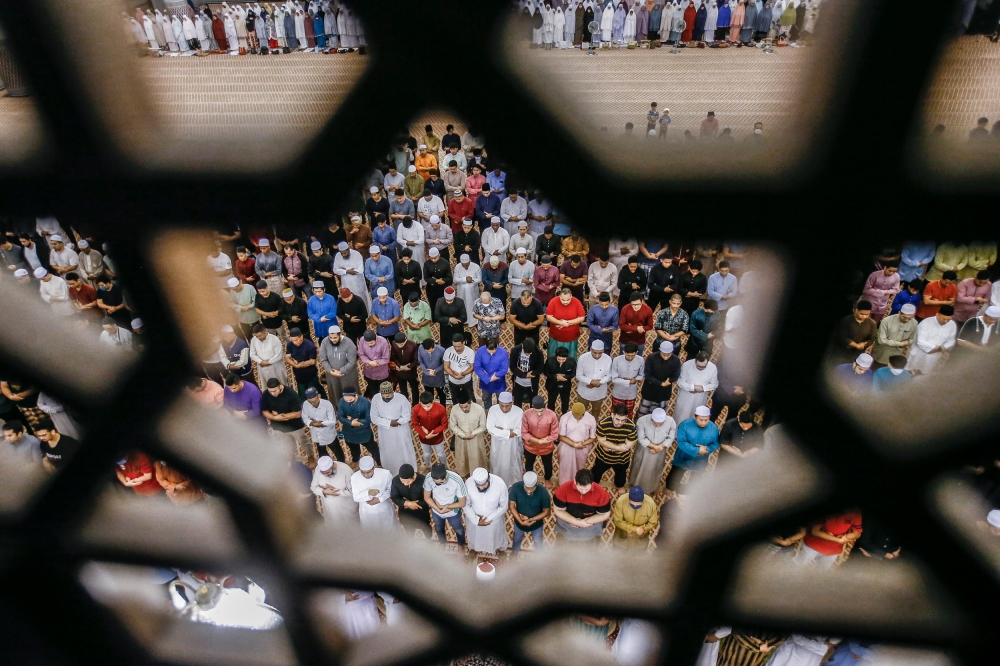AUGUST 18 ― A cognitive tapestry woven from the threads of human histories offer a wryly amusing view — certain regions that held the sceptre of progress in the medieval era now wade knee-deep in socio-political turmoil.
Reflect upon the Islamic world's luminary age when not only stars, but enlightened minds too, were christened with Arabic nomenclature.
The Islamic Golden Age (8th to 14th century), my readers, was an era where the orient sky was ablaze with the brilliance of Islamic civilization more fervently than Aldebaran in the Taurus constellation.
When Europe was wallowing in history’s gloom-ridden Middle Ages, the Islamic world was scintillating with advancements in astronomy, medicine, and mathematics.
A time when a star was not merely a shimmering celestial dot named by an Arab astronomer but served as a metaphor for a polymath like Ibn Sina, whose medical manuscripts informed the bedrock of modern medicine.
Or figures like Al-Khwarizmi, without whom our joy of solving "x” in algebra (Al-Jabr) might not have existed.

When societies lost their North Star
Fast-forward a millennium or so. How deeply ironic — yet cynically predictable — it is to witness religion, instead of a lever to power societal progress, being weaponised as a political Scepter of Authority.
We gaze at the self-proclaimed "Islamic nations” today and observe political leaders exploiting Islam to serve their parochial interest.
They champion a shade of Islam frozen in time, turning a blind eye to the religion's inherent spirit of learning, progress, and inclusivity that once propelled the Golden Age.
In contrast, several secular states, where religion takes a backseat in matters of governance and law, showcase an interesting paradox.
They may not vocally embrace their Islamic heritage, yet they embody more of the Islamic values of the Golden Age, presenting an environment that encourages knowledge, dialogue, innovation, and societal progression.
Isn’t it remarkably ironic that some nations that have come to reflect the Sufi wisdom and scientific curiosity inherent in Islam's character do not label themselves as "Islamic”?
Take the example of Norway, an observer of secularism. With an education system that encourages inquiry, tolerance etched in its societal fabric, and dynamic investment in healthcare and technology, they capture the Quran’s exhortation for Ilm or knowledge.
Here you find a stark paradox: an ostensibly non-Islamic country enshrining principles that resonate more with the Islamic Golden Age than many countries who label themselves "Islamic”.
Diverting the flux of the weaponised religion
In this grand masquerade ball of global civilisations, I find the irony hard to miss. Those nations who clutch their religious identity with zealous firmness often lose touch with their religion’s philosophical roots.
Those who embrace secularism often morph into the more authentic embodiment of Islam’s progressionist spirit, seen in the Islamic Golden Age. Certainly, a lesson is to be gleaned here in the misuse of religion as a political stratagem.
Executed with prudent finesse, religion can be a beacon illuminating paths of unity, progress, and inclusive growth.
But oh, the bittersweet tang of irony when it is spun into a tool of division and repression!
As nations dance around the maypole of development, they ought to hearken to the music of their past, using religion as a harmonious accompaniment fostering advancement, not a discordant note exacerbating divisions.
In the concluding words of a cynic, one wonders, if Muslims would dare to challenge the status quo, and fuel their people's advancement with the religion's spirit, rather than reducing it to an emblem of political sovereignty?
For now, the dance continues, the music plays on, and the stars overhead bear silent witness in Arabic, awaiting another dawn of enlightenment.
* This is the personal opinion of the columnist.
You May Also Like

